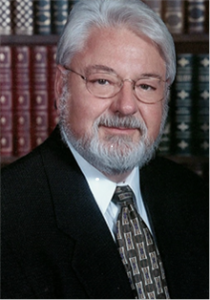
Dr. William V. Judy, founder and president of SIBR Research Institute, has done studies showing that oral ubiquinol is converted to ubiquinone prior to its absorption in the small intestines. In the lymph, it is converted back to the ubiquinol form. It makes sense that the CoQ10 is primarily in the ubiquinol form in the lymph and blood because, there, the need for Coenzyme Q10’s antioxidant properties is greater than the need for the bio-energetics function of the ubiquinone form.
A well-formulated ubiquinone Coenzyme Q10 supplement was absorbed significantly better than a well-formulated ubiquinol supplement, so not all Coenzyme Q10 supplements are the same. This is one of the take-home messages from a recent carefully designed Spanish university study [Lopez-Lluch 2018].
Remember: Ubiquinol supplements are notoriously difficult to work with. As an antioxidant posed to give up its two extra electrons, ubiquinol is by its very nature unstable. Often, the ubiquinol is oxidized (gives up its electrons) while still in the soft-gel capsule.
If the contents of the ubiquinol capsule look yellow or orange, then the ubiquinol in the capsule has changed to the ubiquinone form. The ubiquinol should be milky white inside the capsule.
Dr. Judy’s lab and dog studies of ubiquinol
The following progression of oral ubiquinol from supplements has been shown in Dr. William Judy’s lab studies and large dog studies:
- The ubiquinol is almost completely converted to the ubiquinone form of Coenzyme Q10 when it is exposed to the gastric juices in the stomach and the duodenum.
- The Coenzyme Q10 from the ubiquinol supplement is absorbed in the jejunum while still in the ubiquinone form.
- The ubiquinone Coenzyme Q10 is then converted back to the ubiquinol form as the CoQ10 passes into the lymph and makes its way to the blood circulation.
Note: The dogs used in the studies were not anesthetized, were not harmed, and were not sacrificed.
Begs the question: why ubiquinol?
Dr. Judy’s lab studies and dog studies raise the question: why buy a ubiquinol product? A well-formulated ubiquinone CoQ10 preparation will raise the concentration of the antioxidant form of CoQ10, the ubiquinol form, in the blood significantly.
Ubiquinone CoQ10 supplementation and increases in ubiquinol concentrations
Dr. Roland Stocker and his colleagues were the first to show, already in the early 1990’s, that the administration of ubiquinone CoQ10 raises the levels of ubiquinol (the reduced form of CoQ10) in the plasma and in the lipoproteins [Mohr 1992].
People who want the antioxidant protection of the ubiquinol form of CoQ10 can rest assured that taking a well-formulated ubiquinone CoQ10 supplement will give them that protection.
Different forms and different formulations of CoQ10
Fact: CoQ10 supplements differ as to form:
- ubiquinone form: the stable, much tested form
- ubiquinol form: the unstable, much less tested form
Fact: CoQ10 supplements differ as to composition and formulation.
The recently completed Spanish university study compared not only different forms of CoQ10 supplements – ubiquinone and ubiquinol – but also variously formulated ubiquinone CoQ10 supplements.
The ubiquinone CoQ10 supplements that were tested for absorption differed in the composition of the oils used to dissolve the CoQ10 raw material and in the extent to which the oils containing the CoQ10 were pre-heated prior to being filled into capsules.
The best ubiquinone CoQ10 formulation
The best ubiquinone CoQ10 formulation, the one that was absorbed nearly twice as well as the ubiquinol formulation, also out-performed five other ubiquinone CoQ10 supplements [Lopez-Lluch 2018].
The best formulated ubiquinone CoQ10 supplement gave an absorption that was about three times better than the absorption of any of the other ubiquinone CoQ10 supplements tested [Lopez-Lluch 2018].
Formulation of CoQ10 preparations even more important than form?
It should be noted that the ubiquinol supplement also out-performed the five ubiquinone CoQ10 supplements.
Given this outcome, it is fair to conclude that the composition and the formulation of the CoQ10 supplement is even more important for absorption than the form of the CoQ10.
Health effects of CoQ10 supplementation most important
Okay, we test the absorption of Coenzyme Q10 because consumers want to know that the substance is not just eliminated.
But, we know that the reason consumers take CoQ10 supplements is for the health benefits:
- Improved symptoms and survival for heart failure patients [Mortensen 2014]
- Better heart health for elderly citizens [Alehagen 2013, 2018]
- Increased physical function for Gulf War Illness patients [Golomb 2013]
- Protection against adverse effects of statin medications [Okuyama 2015]
- Lower blood pressure [Rosenfeldt 2007]
- Reduced migraine frequency and intensity [Sandor 2005]
Same ubiquinone CoQ10 product used
The best-absorbed ubiquinone Coenzyme Q10 supplement in the Spanish university study is the same ubiquinone formulation that showed significant health effects in randomized controlled studies:
- Q-Symbio chronic heart failure study [Mortensen 2014]
- KiSel-10 senior citizens study [Alehagen 2013, 2018]
- Gulf War Illness study [Golomb 2014]
Sources
Alehagen, U., Aaseth, J., Alexander, J., & Johansson, P. (2018). Still reduced cardiovascular mortality 12 years after supplementation with selenium and coenzyme Q10 for four years: A validation of previous 10-year follow-up results of a prospective randomized double-blind placebo-controlled trial in elderly. Plos One, 13(4), e0193120. doi:10.1371/journal.pone.0193120
Alehagen, U., Johansson, P., Björnstedt, M., Rosén, A., & Dahlström, U. (2013). Cardiovascular mortality and N-terminal-proBNP reduced after combined selenium and coenzyme Q10 supplementation: a 5-year prospective randomized double-blind placebo-controlled trial among elderly Swedish citizens. International Journal of Cardiology, 167(5), 1860-1866.
Golomb, B. CoQ10 and gulf war illness. Neural Computation 2014 Nov; Vol. 26 (11), pp. 2594-651
López-Lluch, G., Del Pozo-Cruz, J., Sánchez-Cuesta, A., Cortés-Rodríguez, A. B., & Navas, P. (2019). Bioavailability of coenzyme Q10 supplements depends on carrier lipids and solubilization. Nutrition, 57, 133–140.
Mohr, D., Bowry, V. W., & Stocker, R. (1992). Dietary supplementation with coenzyme Q10 results in increased levels of ubiquinol-10 within circulating lipoproteins and increased resistance of human low-density lipoprotein to the initiation of lipid peroxidation. Biochimica et Biophysica Acta, 1126(3), 247-254.
Mortensen, S. A., Rosenfeldt, F., Kumar, A., Dolliner, P., Filipiak, K. J., Pella, D., & Littarru, G. P. (2014). The effect of coenzyme Q10 on morbidity and mortality in chronic heart failure: results from Q-SYMBIO: a randomized double-blind trial. JACC. Heart Failure, 2(6), 641-649.
Okuyama, H., Langsjoen, P. H., Hamazaki, T., Ogushi, Y., Hama, R., Kobayashi, T., & Uchino, H. (2015). Statins stimulate atherosclerosis and heart failure: pharmacological mechanisms. Expert Review of Clinical Pharmacology, 8(2), 189-199.
Rosenfeldt, FL et al. Coenzyme Q10 in the treatment of hypertension: a meta-analysis of the clinical trials. Journal of Human Hypertension, 2007, 21: 297-306.
Sándor, P. S., Di Clemente, L., Coppola, G., Saenger, U., Fumal, A., Magis, D., & Schoenen, J. (2005). Efficacy of Coenzyme Q10 in migraine prophylaxis: a randomized controlled trial. Neurology, 64(4), 713-715.
Disclaimer: The information contained in this review article is not intended as medical advice and should not be construed in that way.


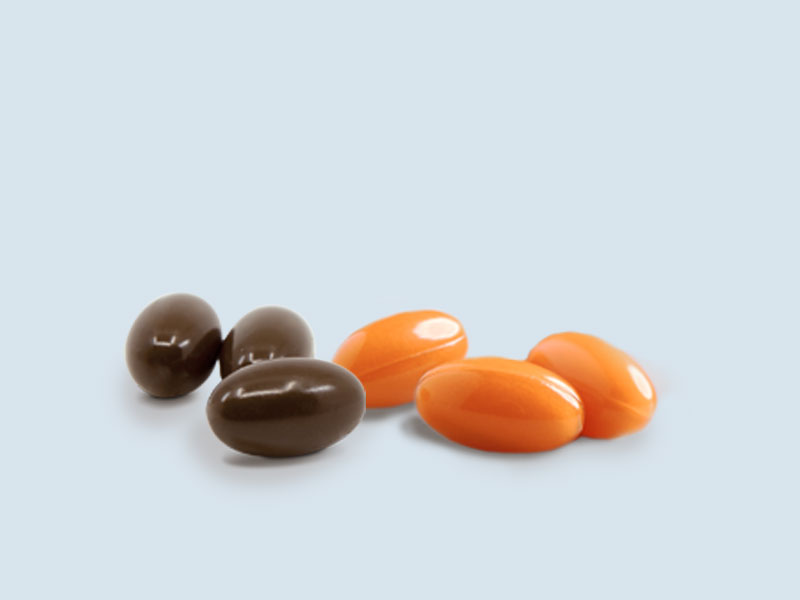
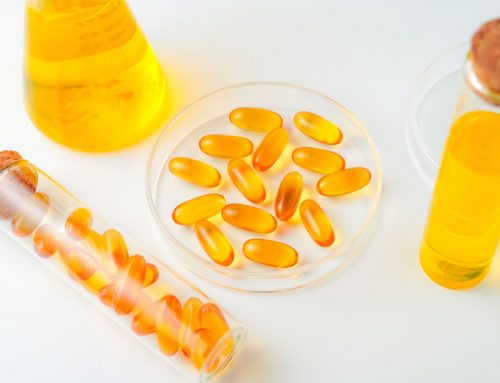
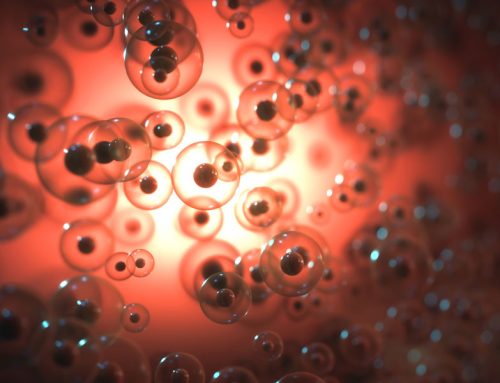
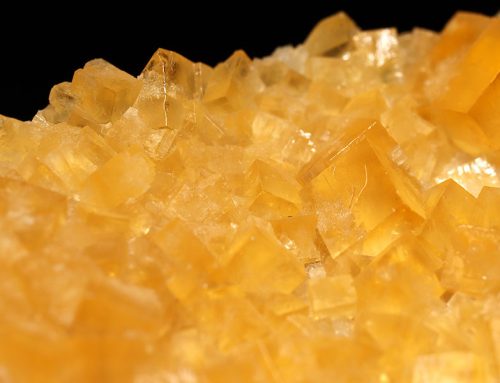
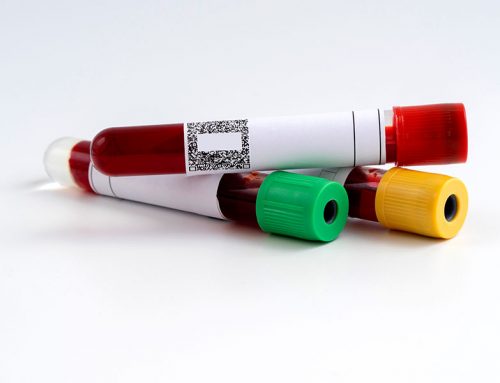
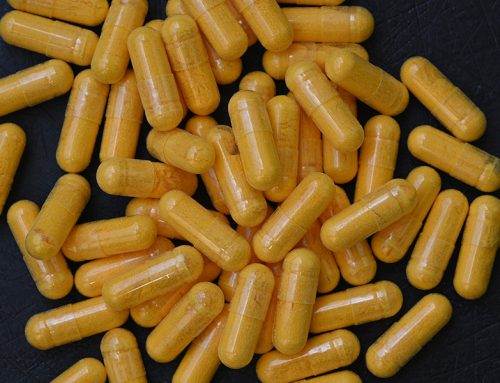
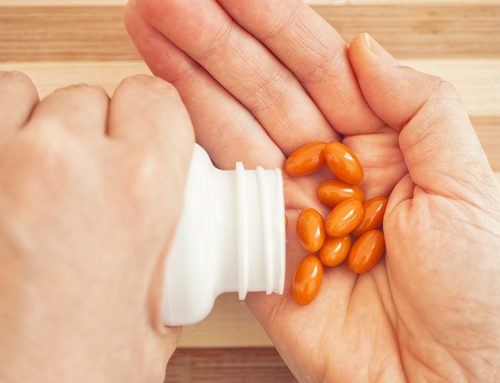
I am thoroughly confused now! After reading article after article at this site extolling the superiority of Bio-Quinone Active CoQ10 and how Dr. Judy takes this form of CoQ10, I was shocked to discover he has his own CoQ10 product for sale at another website, cytomed.net! The product is CoQLife and his site claims it is the absolutely most highly absorbed CoQ10 product available. Which one does he actually take and which one is truly superior? I realize there may be a simple explanation for this discrepancy and that perhaps either his site or yours may be more up to date. Please clear up this confusion!
Joseph:
Did Richard Morrill answer your question about the difference between the Pharma Nord CoQ10 and the Cyto Med CoQ1)? My answer is that they are not the same formulations. The Cyto Med CoQ10 is a crystal free product with an absorption of 8%. of a 100 mg dose. This dose will increase for a 100 mg dose.the plasma CoQ10 to 4.0 ug/ml. The Pharma Nord contains crystals which the body can’t absorb. It takes 300 mg/day to raise the plasma level to 3.45 ug/ml. The Cyto Med product is a new product. It has not had the clinical testing as has the Pharma Nord product. It has limited marketing. I have taken the Cyto-Med product for the past 10 years. I’m a heart failure patient for the past 20 years. I give CoQ10 the credit for my stable heart function , long life and quality of life.
Thanks,
William V. Judy, PhD
Hello, Joseph,
My apologies for creating confusion.
1. Please note that I have never written that Dr. Judy takes Bio-Quinone Active CoQ10, only that he takes the ubiquinone (not the ubiquinol) form of CoQ10. Drs. Mohr, Bowry, and Stocker have shown that it is not necessary to take ubiquinol supplements in order to increase the ubiquinol content of the blood. A good ubiquinone product will do the job.
Source: Mohr, D., Bowry, V. W., & Stocker, R. (1992). Dietary supplementation with coenzyme Q10 results in increased levels of ubiquinol-10 within circulating lipoproteins and increased resistance of human low-density lipoprotein to the initiation of lipid peroxidation. Biochimica et Biophysica Acta, 1126(3), 247-254.
Dr. Judy has shown that it is unnecessary to take oral ubiquinol because the oral ubiquinol will be oxidized to ubiquinone prior to its reaching the absorption cells in the jejunum and it will be absorbed as ubiquinone. Then it will be reduced back to ubiquinol in the lymph and will transit into the blood as ubiquinol. So, why pay for an unstable ubiquinol product when a good ubiquinone product will give the same ubiquinol protection in the blood? You may have seen that Dr. Judy has also shown that some ubiquinol products have partially oxidized to ubiquinone already in the capsule.
2. The crystal-free ubiquinone product that Dr. Judy takes, yes, it may be clearer than the Bio-Quinone Active CoQ10 is. Pharma Nord’s patent specifies that there will be CoQ10 crystals in its capsules. However, these CoQ10 crystals in the Bio-Quinone Active CoQ10 capsules at room temperature will not be the three-dimensional rhomboid crystals of the CoQ10 raw material but will be CoQ10 crystals with a snow-flake structure giving them a much greater surface area to volume ratio, and, accordingly, a much better dissolution into single molecules at body temperature in the stomach.
The Bio-Quinone Active CoQ10 formulation has been shown to raise plasma/serum CoQ10 concentrations to therapeutic levels (Lopez-Lluch 2019).
Furthermore, the Bio-Quinone Active CoQ10 formulation has been shown in clinical trials to have statistically significant (and clinically significant) health effects on chronic heart failure patients and senior citizens and Gulf War Illness patients. No other CoQ10 product has demonstrated these achievements.
Sources:
Alehagen, U., Johansson, P., Björnstedt, M., Rosén, A., & Dahlström, U. (2013). Cardiovascular mortality and N-terminal-proBNP reduced after combined selenium and Coenzyme Q10 supplementation: a 5-year prospective randomized double-blind placebo-controlled trial among elderly Swedish citizens. International Journal of Cardiology, 167(5), 1860-1866.
Golomb, B. CoQ10 and Gulf War Illness. Neural Computation 2014 Nov; Vol. 26 (11), pp. 2594-651.
López-Lluch, G., Del Pozo-Cruz, J., Sánchez-Cuesta, A., Cortés-Rodríguez, A. B., & Navas, P. (2019). Bioavailability of coenzyme Q10 supplements depends on carrier lipids and solubilization. Nutrition, 57, 133–140.
Mortensen, S. A., Rosenfeldt, F., Kumar, A., Dolliner, P., Filipiak, K. J., Pella, D., & Littarru, G. P. (2014). The effect of coenzyme Q10 on morbidity and mortality in chronic heart failure: results from Q-SYMBIO: a randomized double-blind trial. JACC. Heart Failure, 2(6), 641-649.
Hello Joseph,
To your comments and questions:
Let me preface all my remarks by reminding you and myself that there is considerable variation from individual to individual in the response to oral CoQ10 absorption.
1. Yes, we think that Coenzyme Q10 supplements should be taken with meals, especially with meals that contain some fat.
2. We think that using fish oil as a carrier oil in the CoQ10 capsule will not improve the absorption of the CoQ10 compared with, for example, soybean oils as the carrier oils. Unpublished studies seem to show this.
However, it has not been shown, to my knowledge, that fish oil supplements taken at the same time of day as CoQ10 supplements will reduce the uptake of the CoQ10. I regret having caused confusion by passing on the suggestion that people may want to take CoQ10 and fish oil supplements at different times of the day if they are worried about the effect of fish oil on the absorption of CoQ10.
3. In his 2019 paper, Professor Lopez-Lluch has speculated that “the proportion and addition of preservatives such as vitamin C affected the bioavailability of CoQ10.” In his comparison of the absorption of seven formulations, Professor Lopez-Lluch compared two ubiqinone formulations that were identical except that the one formulation contained 12 milligrams of Vitamin C. That formulation that contained the vitamin C increased the participants’ plasma CoQ10 concentrations only half as much as the identical formulation minus the vitamin C. This is interesting.
Source: López-Lluch, G., Del Pozo-Cruz, J., Sánchez-Cuesta, A., Cortés-Rodríguez, A. B., & Navas, P. (2019). Bioavailability of coenzyme Q10 supplements depends on carrier lipids and solubilization. Nutrition, 57, 133–140.
4. Why is d-alpha tocopherol listed as an ingredient in Bio-Quinone CoQ10?
Here is the answer I have gotten. Pharma Nord’s Bio-Quinone CoQ10 contains slight amounts of vitamin E. Very slight amounts. Why? Because, first of all, the supplier of the soybean oils to Pharma Nord puts a slight amount of Vitamin E in to act as an antioxidant to keep the soybean oils from becoming rancid. Then, secondly, Pharma Nord adds a slight amount in the final formulation for the same reason.
Remember, the amount of the vitamin E in the carrier oils and in the capsule is not constant. The amount declines as the Vitamin E has its antioxidant effect.
That said, I regret having caused confusion by passing on speculation that vitamin E might reduce the uptake of CoQ10.
Most of what we know at the present time is known from from animal studies. Small quantities of vitamin E do not seem to affect the absorption of CoQ10. In his presentation on CoQ10 pharmacokinetics at an international symposium in Bangkok in 2017, Professor Lopez-Lluch raised the question of whether quantities in excess of 300 milligrams of vitamin E taken at the same time as the CoQ10 supplement is taken would have a deleterious effect on the CoQ10 absorption. This effect of larger quantities of Vitamin E might be explained by the effect of the vitamin E on the carrier oils used in the CoQ10 capsule.
From a study with rats: “The results obtained from this study provide experimental evidence for an interaction in vivo between exogenously administered VE and CQ10 in terms of uptake and tissue retention. The evidence also points to an interaction between these two redox compounds at the endogenous level with respect to the liver and spleen. Moderate levels of VE in the diet enhanced the retention of dietary CQ10 in these organs, whereas high levels of VE had the opposite effect. These data suggest that VE is a key determinant of CQ10 status. The data obtained also suggest that CQ10 has a sparing effect on VE, possibly via the regeneration of VE from the tocopheroxyl radical.”
Source: Ibrahim, W. H., Bhagavan, H. N., Chopra, R. K. & Chow, C.K. (2000, Sept.). Dietary Coenzyme Q10 and Vitamin E Alter the Status of These Compounds in Rat Tissues and Mitochondria. The Journal of Nutrition, 130 (9): 2343–2348.
From a baboon study: “We also noted that vitamin E supplementation tended to reduce the concentrations of plasma CoQ10 and that CoQ10 supplementation tended to reduce α-tocopherol concentrations. The reason or reasons for this tendency are not clear at present. One previous study also showed that cosupplementation of apolipoprotein E–deficient mice with vitamin E and CoQ10 reduced plasma vitamin E concentrations more than did supplementation with vitamin E alone, although in that case, vitamin E supplements did not reduce plasma CoQ10 concentrations. A possible explanation for these differences is that one lipid-soluble antioxidant may displace the other, given their similar distribution in plasma lipoproteins. This could be particularly relevant when HDL, which is small in relation to LDL, is a major carrier of lipid-soluble antioxidants, as appears to be the case in baboons, according to the ratio of total to HDL cholesterol.
In summary, our study shows that dietary supplementation with vitamin E has anti-inflammatory effects in baboons, as judged by circulating concentrations of CRP. Cosupplementation with vitamin E and CoQ10 significantly enhanced both anti-inflammatory and antioxidant protection. These effects may in turn help protect against vascular diseases. The significant effects of and interindividual variation in these effects in baboons show that the pedigreed baboon may be a reasonable model in which to study the genetic basis for regulating responses to dietary antioxidant supplementation.”
The authors remind the reader that “… there are some differences in lipid profiles between baboons and humans: eg, baboons tend to have higher concentrations of HDL cholesterol than of non-HDL cholesterol.”
Source: Wang, X. L., Rainwater, D. L., Mahaney, M. C. & Stocker, R. (2004, Sept.). Cosupplementation with vitamin E and coenzyme Q10 reduces circulating markers of inflammation in baboons. Am J Clin Nutr, 80(3): 649-655.
From a study with humans: “To test separate effects and interaction between Q10 and vitamin E in the change of plasma concentrations and in the antioxidative efficiency, we carried out a double-masked, double-blind clinical trial in 40 subjects with mild hypercholesterolemia undergoing statin treatment. Subjects were randomly allocated to parallel groups to receive either Q10 (200 mg daily), d-alpha-tocopherol (700 mg daily), both antioxidants or placebo for 3 months. In addition we investigated the pharmacokinetics of Q10 in a separate one-week substudy. In the group that received both antioxidants, the increase in plasma Q10 concentration was attenuated. Only vitamin E supplementation increased significantly the oxidation resistance of isolated LDL. Simultaneous Q10 supplementation did not increase this antioxidative effect of vitamin E. Q10 supplementation increased and vitamin E decreased significantly the proportion of ubiquinol of total Q10, an indication of plasma redox status in vivo. The supplementations used did not affect the redox status of plasma ascorbic acid. In conclusion, only vitamin E has antioxidative efficiency at high radical flux ex vivo. Attenuation of the proportion of plasma ubiquinol of total Q10 in the vitamin E group may represent in vivo evidence of the Q10-based regeneration of the tocopheryl radicals. In addition, Q10 might attenuate plasma lipid peroxidation in vivo, since there was an increased proportion of plasma ubiquinol of total Q10.”
Source: Kaikkonen, J., Nyyssonen, K., Tomasi, A.,Iannone, A., Tuomainen, T. P., & Salonen, J. T. (2000, Sept.). Antioxidative efficacy of parallel and combined supplementation with coenzyme Q10 and d-alpha-tocopherol in mildly hypercholesterolemic subjects: a randomized placebo-controlled clinical study. Free Radic Res, 33(3): 329-40.
5. What about the amount of vegetable oil fat in Bio-Quinone CoQ10?
There are two things that are the primary reason for the absorption of the CoQ10 in Bio-Quinone CoQ10 and for its significant clinical effects in the Q-Symbio Study, the KiSel-10 Study, and the Gulf War Illness Study:
a. the choice and proportion of soybean oils with specific melting points
b. the use of a highly specified heating and cooling procedure
The thing that impresses me about the Bio-Quinone CoQ10 is that the company tested the product in randomized, double-blind, placebo-controlled trials of two and four years’ duration: the Q-Symbio Study of chronic heart failure patients and the KiSel-10 study of senior citizens. Absorption is a good thing, yes, and absorption is necessary, but I want to see statistically significant clinical results for the product I buy.